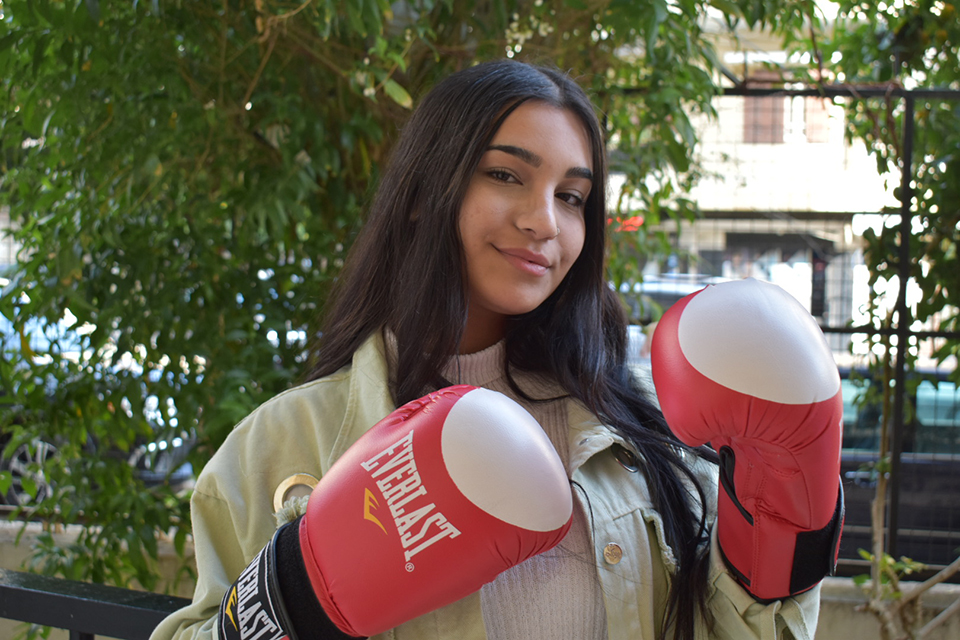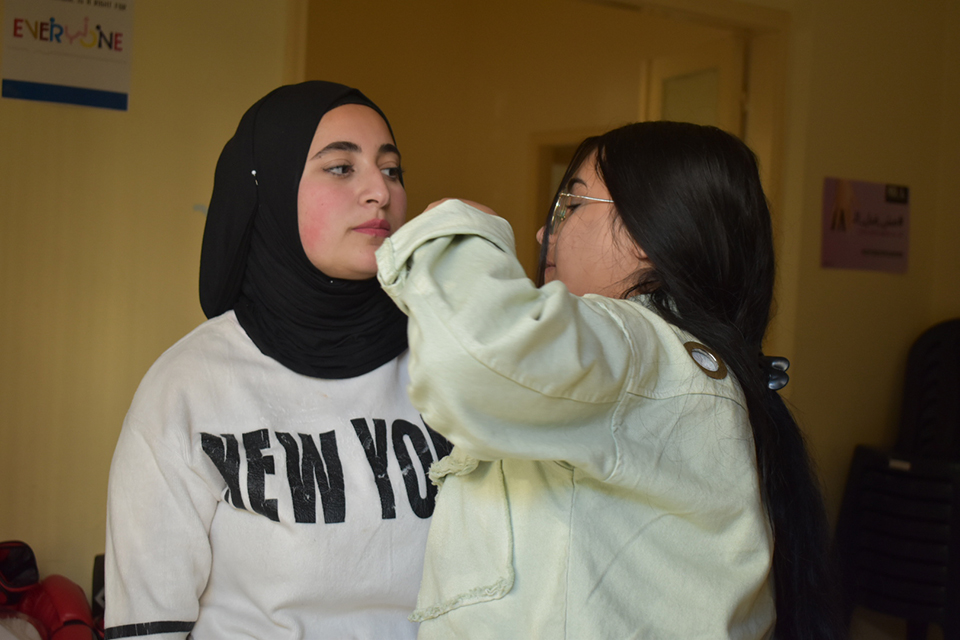From where I stand: “Self-defense allowed me to express myself freely.”
Date:
Janine El Yakhneh, a 20-year-old nursing student in Lebanon, has provided home-based care to patients since she was 18 in Tripoli, a city in the north of Lebanon. She chose this profession because of her passion to care for others but was unaware of the possible risks of working in the privacy of other people's homes. After feeling unsafe at work, Janine joined self-defense classes to transform her fear into empowerment, strengthen her confidence, and learn how to respond effectively to gender-based violence and harassment.
The self-defense classes are part of a broader package of services provided by UN Women and the Lebanese Women Democratic Gathering (RDFL) under the joint project entitled "Multi-Sectoral Response to the Humanitarian Crisis in the North of Lebanon through the Human Security Approach”, led by UN-Habitat, UNICEF and UN Women, and funded by United Nations Trust Fund for Human Security (UNTFHS). The project aims to improve the resilience and security of communities in the vicinity of Shalfeh, Tripoli, by addressing basic needs and enhancing the delivery of protection services.

 During the COVID-19 pandemic, I noticed how much Lebanon's healthcare was suffering, and even more so the sacrifices nurses were making to respond to this crisis. Witnessing their strength and compassion was one of the reasons I decided to study nursing, to contribute to the health sector and provide care for people who needed it the most.
During the COVID-19 pandemic, I noticed how much Lebanon's healthcare was suffering, and even more so the sacrifices nurses were making to respond to this crisis. Witnessing their strength and compassion was one of the reasons I decided to study nursing, to contribute to the health sector and provide care for people who needed it the most.
Verbal harassment in the nursing sector is common to the point that many think it is part of the job, with the perpetrator often being patients, medical staff, and visitors. I was also followed by staff personnel while working in a hospital, and this experience made me resign from this position and move into private care.
Whether working at a hospital or in a patient's home, there have been countless incidents where my safety has been compromised. In private care, I noticed that many families caring for older people remove locks and doors or put cameras around the house to watch over them. For example, when caring for an 80-year-old woman, the sole carer removed the door from the main bathroom and installed a camera inside. Unfortunately, it was the only available bathroom in the house, and it made me uncomfortable not having a space for my privacy, so I decided to leave.
When I first heard about the self-defense classes that UN Women and RDFL were providing, I was interested to find out more. We were taught Taekwondo, a mixed-martial art that focuses on how to defend oneself from an attack and on creating a stable and more balanced mindset.

I cannot describe how empowered I feel after completing all 12 sessions. I felt myself becoming stronger - physically and mentally, every day. We learned how to stay focused on our target while controlling our bodies and how to escape while having our hands trapped, among other moves.
The trainer also taught us how to defend ourselves through verbal communication and psychological strategies without resorting to violence. She reminded us that we are much more capable than we think, and now we believe in ourselves and our power to respond to situations where we feel at risk.
The self-defense classes have given me the courage to express myself more freely. If I ever feel unsafe at work, home, or on the streets, I know how to react, respond, and report to the situation appropriately and effectively.
I believe all women and girls should learn basic self-defense and to become better capable of defending themselves in the face of violence. Now I know that we, as women, are strong and should not be silenced."
Janine is one of 150 women and girls receiving self-defense classes in the "Markazouna," a newly rehabilitated multiservice community centre for children, youth, women and community members in Tripoli implemented by UN-Habitat, UNICEF and UN Women, and funded by the Human United Nations Trust Fund for Human Security (UNTFHS). The self-defense classes aim to build women's sense of safety and give them the confidence to defend themselves against mental, emotional, and physical abuse in all areas of their lives.